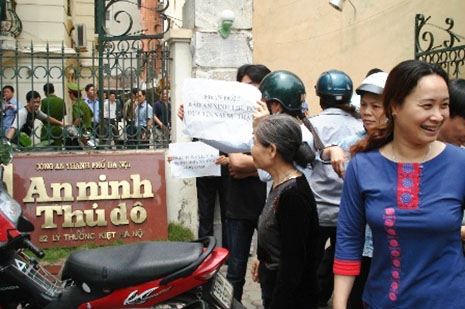
In January this year General Vo Nguyen Giap, the ninety-seven-year-old hero of the anti-French and anti-American wars, dispatched a letter to the Politburo in Hanoi arguing that a big Chinese bauxite mine project in Vietnam’s central highlands would significantly damage the environment, society and national defence. The Politburo had approved the project in 2007 without consulting the National Assembly.
Thanks to the internet, General Giap’s letter and two subsequent communications quickly reached a substantial audience both domestically and overseas. A petition against the bauxite mine was signed by over 2000 well-known intellectuals, academics and other concerned individuals; in a deliberate challenge to the police, each person appended his or her address. Remarkably, the Communist Party allowed a seminar on the bauxite mine project to be convened in April, at which scientists and economists voiced strong opposition.
Environmentalists presented evidence on the destructive impact of open-cut bauxite mining overseas. Social scientists pointed out how many ethnic minority inhabitants would be forced to relocate. But it was the thought of the 2000 Chinese employees of Chinalco who will work on the project, and likely Chinese intelligence operations in a sensitive region of the country, that made the mine an emotive national issue. Beyond that, some commentators warn that Vietnam has already become too dependent on Chinese imports and capital investment.







